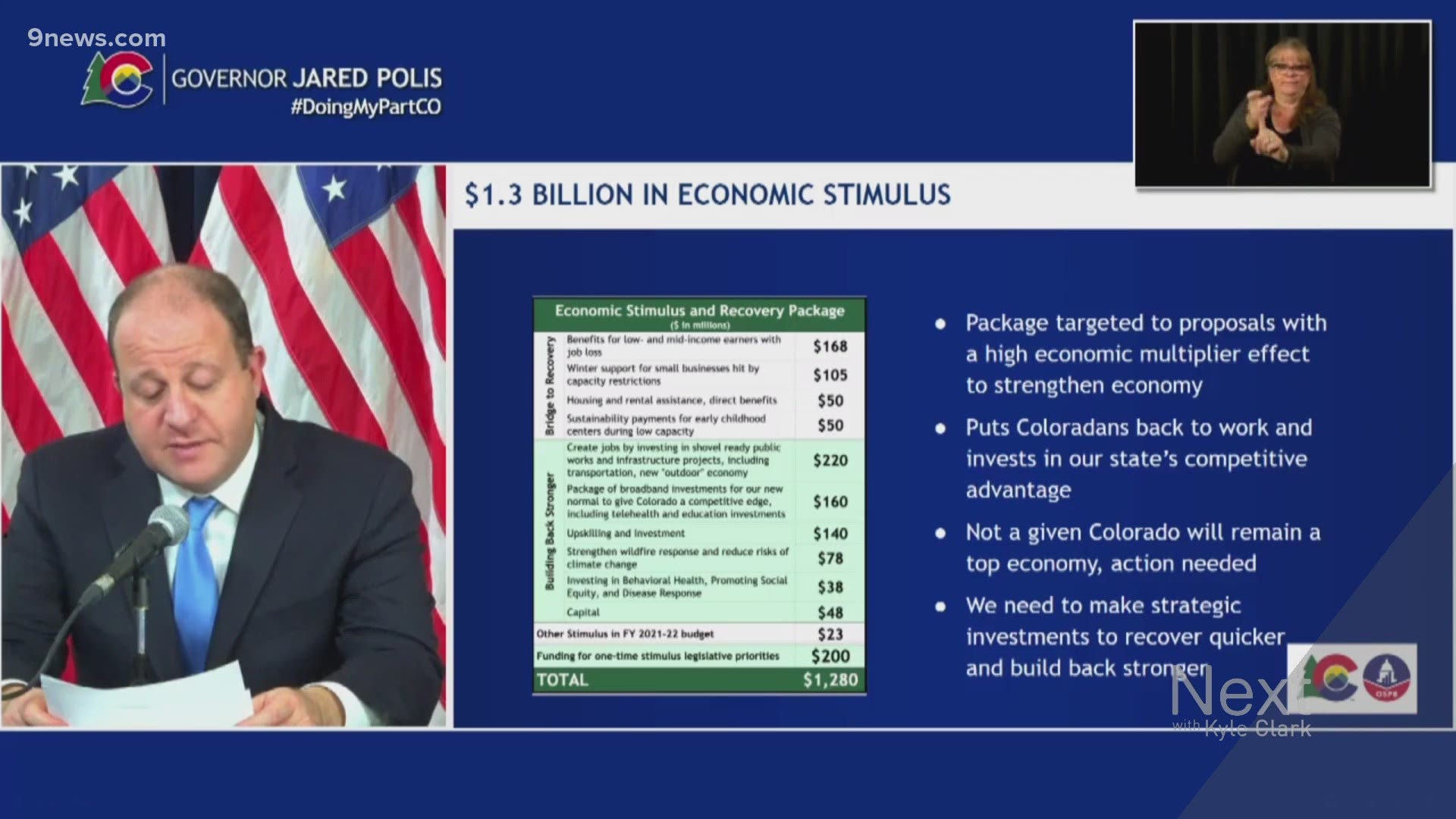DENVER — The governor will present his 2021-22 budget to Colorado state lawmakers on Thursday, hoping they'll fast track $1.3 billion for a state-provided stimulus.
Gov. Jared Polis is required to present a budget to the six-member Joint Budget Committee (JBC) by November 1 each year.
Last Monday, he announced his hope for a $1.3 billion stimulus, to include immediate needs:
- $105 million for restaurants to keep the state's 2.9% sales tax for four months (maximum $2,000 per month).
- $50 million to help child-care providers
- $50 million for eviction assistance
"We hope to work with Republicans and Democrats in the legislature on a number of these items ahead of the Long Bill, the normal budget process, simply because they're more urgent," said Polis on Nov. 1.
Colorado's budget goes from July to June, not January to December.
The JBC starts the budget process in November, and by March will present the Long Bill to the entire legislature to be debated. The legislature must pass a budget before it adjourns in early May.
That timeline doesn't exactly work for a stimulus package today.
"That leads to a discussion of putting money in reserves versus spending it on stimulus. The next two years are predicted to be the demand is greater than revenue," said JBC member Sen. Bob Rankin (R-Carbondale).
Projections from the governor's budget director show the state has money to spend or save this year and next year, while 2022 and 2023 already show the state having more expenses than it can currently afford, and that's before voters made their choices on the November ballot last week, providing the state some additional money, but also taking other funds away.
"The voters made conflicting fiscal decisions at the ballot," said JBC Chair Sen. Dominick Moreno (D-Commerce City). "They raised taxes in some areas, and they decreased them in others. What that ultimately means is that it's roughly a wash."
Voters approved Amendment B, repealing the Gallagher Amendment. That will allow to keep funds it normally would have sent to local school districts, but now won't have to provide as much since local property assessment rates will remain flat instead of decreasing.
They also approved Amendment 77, which could get rid of bet limits in gaming towns. If those gaming town councils increase bet limits, the revenue could generate more money for the state's general fund.
The approval of higher tobacco taxes and a new nicotine tax with Proposition EE is neutral, since that money is already spoken for.
When voters passed Proposition 116, they lowered the state's income tax, which will mean around $200 million fewer dollars for the current budget year ending in July.
Passing Amendment 114, the reintroduction of wolves, will cost hundreds of thousands of dollars each year.
And by passing Proposition 118, paid family and medical leave, voters guaranteed the state would spend around $500 million starting in 2023 to cover the employer portion for state employees.
Among the longer-term items in Polis' stimulus package:
- $130 million for shovel-ready road and bridge projects
- $120 million in broadband access for 20,000-30,000 people in rural areas
- $70 million to revitalize Main Streets
- $20 million to enhance State Parks capacity
The JBC has the power to approve supplemental spending while the legislature is not in session, which sounds like what Polis is asking for in some of his budget request. Even if the JBC members approve interim spending, once the legislative session begins in January, the entire legislature can review the approvals.
SUGGESTED VIDEOS: Full Episodes of Next with Kyle Clark

